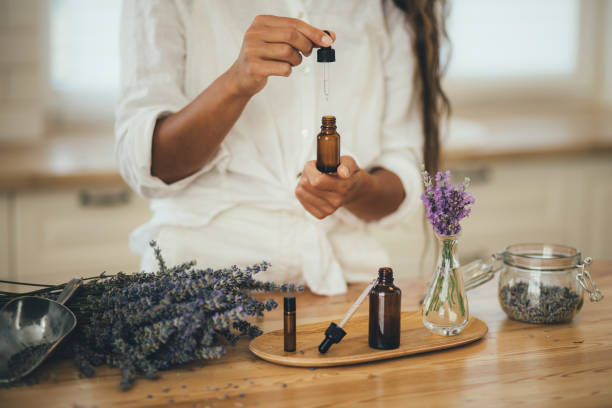Unraveling the Health Potential of Aromatherapy: A Fresh Look at Essential Oils
Have you ever wondered how the fragrant scent of a rose or the sharp smell of eucalyptus can significantly alter your mood? Welcome to the world of aromatherapy, a practice leveraging the therapeutic potential of plants' aroma-producing oils. While it's an ancient practice, modern science has only recently begun to validate its health benefits.

A Fragrant History: The Roots of Aromatherapy
Aromatherapy, as a practice, can be traced back more than 5000 years across various cultures, each utilizing aromatic plants for healing purposes. Ancient Egyptians, for example, were known to use fragrant oils in their religious rituals, believing in their spiritual and physical healing properties.
In the modern world, the term “aromatherapy” was first coined by French chemist René-Maurice Gattefossé in 1937. After an accident in his laboratory, Gattefossé used lavender oil to treat his burns and was astounded by its healing properties.
The Science of Scent: How Aromatherapy Works
Scientifically, the principle behind aromatherapy lies in our sense of smell. When we inhale the aroma of essential oils, the scent molecules travel through the nose to the olfactory bulb, a part of our brain responsible for processing smells. This region communicates with other parts of the brain like the amygdala and hippocampus, which are associated with emotions, memory, and learning.
The result? A cascade of neurochemicals that can boost mood, reduce anxiety, improve sleep, and promote overall well-being.
Unmasking Essential Oils: The Pillars of Aromatherapy
Essential oils, the heart of aromatherapy, are plant extracts capturing the “essence” of their source. Each oil has a distinctive chemical composition, contributing to its unique aroma and potential health benefits.
For example, lavender oil, rich in linalool and linalyl acetate, is renowned for its calming effects and is often used for stress relief and sleep enhancement. On the other hand, eucalyptus oil, high in eucalyptol, is famous for its invigorating and decongesting properties.
Aromatherapy Today: Modern Applications and Research Insights
Today, aromatherapy has gained traction as a complementary therapy in various medical settings. Studies indicate it may help manage pain, improve sleep quality, reduce stress and anxiety, and boost mood. However, it’s crucial to remember that while aromatherapy can support health and wellness, it should not replace conventional medical treatments.
Quick Aromatherapy Guide:
- Lavender oil: Use for stress relief and sleep enhancement.
- Eucalyptus oil: Try for its invigorating and decongesting properties.
- Peppermint oil: Consider for its energizing effects, especially for mental focus.
- Chamomile oil: Known for its calming properties, perfect for relaxation.
In conclusion, aromatherapy offers a unique and holistic approach to health and wellness. Rooted in ancient traditions and validated by modern science, this practice leverages the power of plant-derived essential oils to promote physical and emotional well-being. So, the next time you breathe in the aroma of your favorite essential oil, remember - you’re engaging in a practice that’s as old as civilization itself, backed by the power of science.




